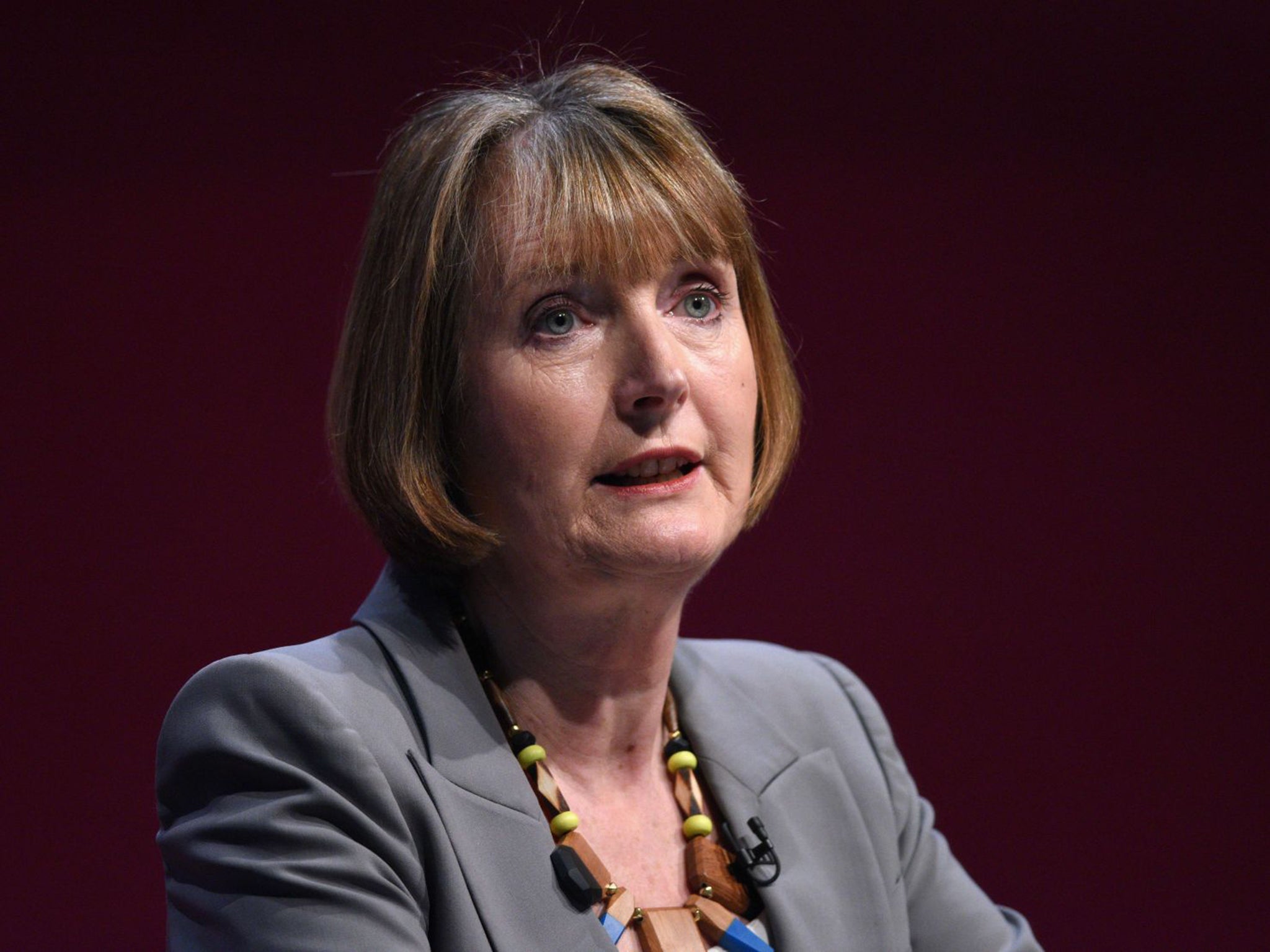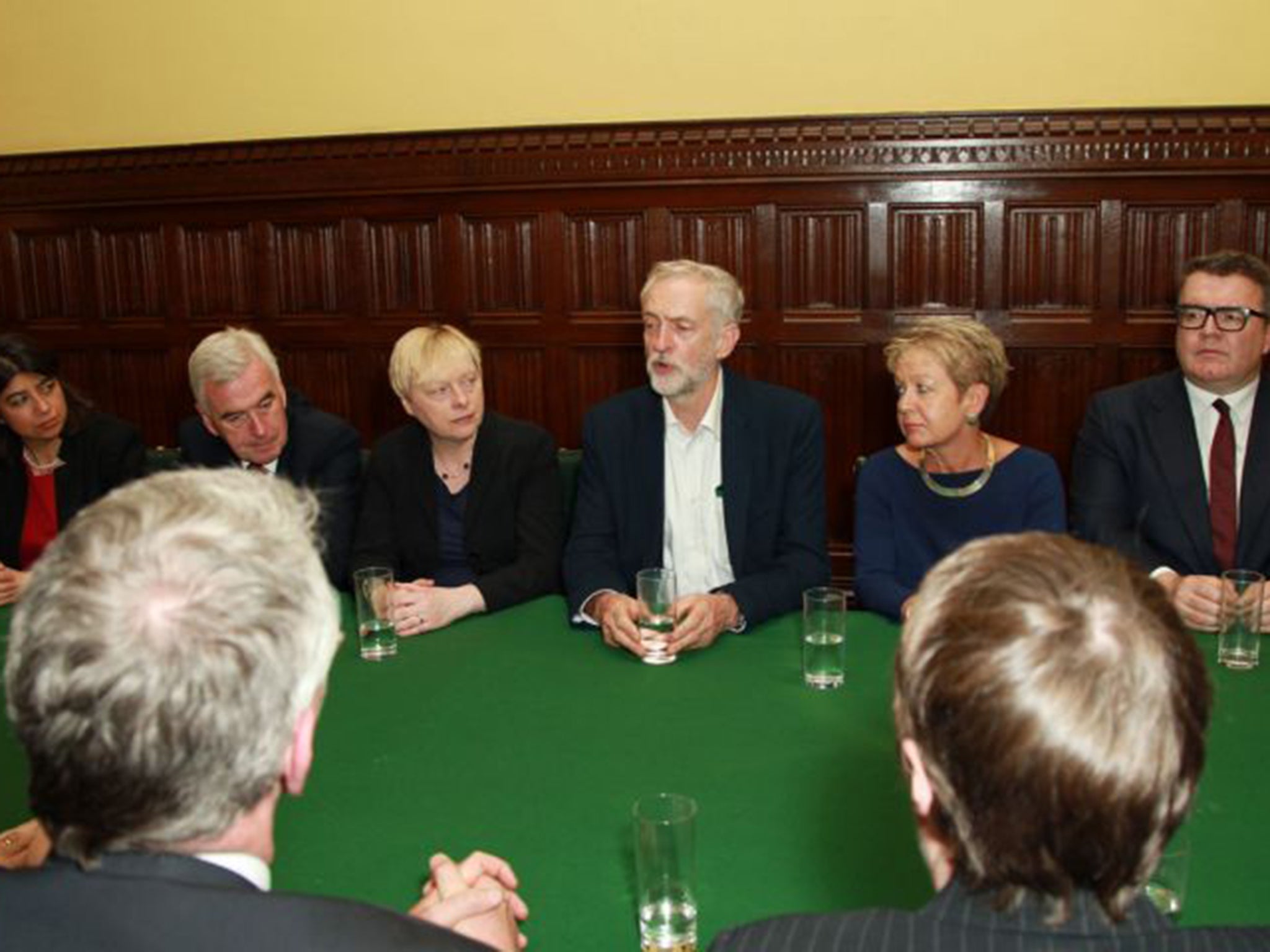Harriet Harman: Labour is failing women
The former deputy leader threw down the gauntlet to Mr Corbyn, saying he had to 'sort it out so that we have women’s leadership at the top of the party'

Jeremy Corbyn’s credentials as a leader with only a limited commitment to equality was put firmly back in the spotlight after Harriet Harman issued a public warning that Labour women are not content with a “clean sweep of men” holding the top jobs.
In a hard-hitting speech at Labour’s women’s conference, the curtain raiser to the party’s annual gathering, the former deputy leader threw down the gauntlet to Mr Corbyn, saying he had to “sort it out so that we have women’s leadership at the top of the party”.
For the first time in more than a decade, all the senior positions in Labour are held by men. Following the election of Mr Corbyn and Tom Watson as his deputy, the senior shadow roles of Chancellor, Foreign Secretary and Home Secretary are all filled by male MPs.
Ms Harman, still regarded as the premier female voice in Labour’s ranks, added another two positions to the lengthy male-only list when she told the conference : “Now, we have a male leader, male deputy leader, male London mayoral candidate and male general secretary.”
She said that although Labour was not in government, “women in this country are counting on Labour women to speak up for them to challenge discrimination and sexism”.

That challenge, according to Ms Harman, should take place inside the new Corbyn-led regime. She called for an enforced system of positive discrimination in favour of women to be brought in, telling delegates: “Let’s review and renew the party rules and organisation so that we have women at every level in the party, including the leadership, and that we give this women’s conference power by putting it on a proper constitutional footing.”
Mr Corbyn was warmly welcomed at the women’s conference with sustained applause. However, his speech, which praised Harriet Harman’s achievements in advancing the rights of women, papered over the issue of the lack of women in senior shadow roles.
He told delegates that his promise to ensure his Shadow Cabinet had an equal male-female balance had been honoured and said there were now 16 women and 15 men in his shadow team. Those who were expecting an explanation for the male dominance in the top shadow jobs were disappointed.
He made a thinly veiled reference to the criticism of his equality credentials in the opening days of his leadership, saying that after being elected he “realised troubles were just beginning”.
Mr Corbyn is expected to say more on equality in his first leader’s speech later this week, but simply repeating that he has honoured the equality promise may not be enough.
Ms Harman did not name Mr Corbyn in her speech; instead she issued a barely coded threat. “Let’s warn those in the party who want to drag their feet on women’s demands and who want to resist change,” she said. “If we drop our mantle of being the champions of women in this country there will be others – the SNP, the Greens – who will be only too happy to pick it up.”
Mr Corbyn has previously denied his shadow team lacks gender balance, pointing out that the so-called “great offices of state” were defined in the 19th century and did not reflect current political priorities.
Join our commenting forum
Join thought-provoking conversations, follow other Independent readers and see their replies
Comments
Bookmark popover
Removed from bookmarks